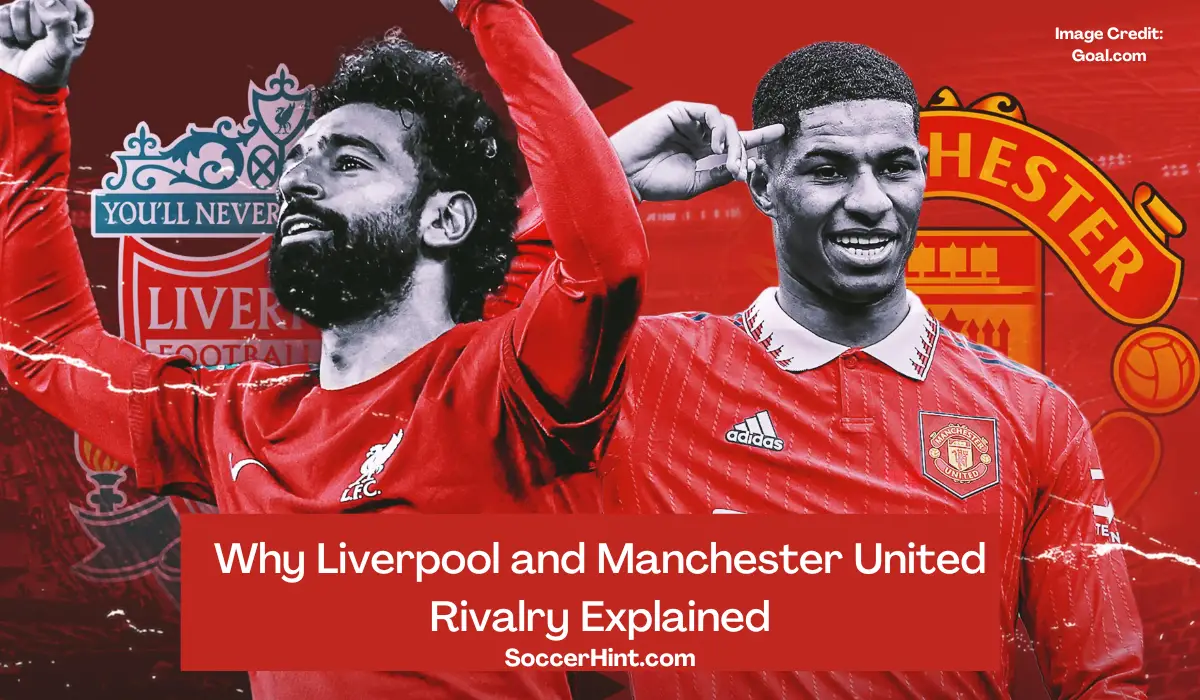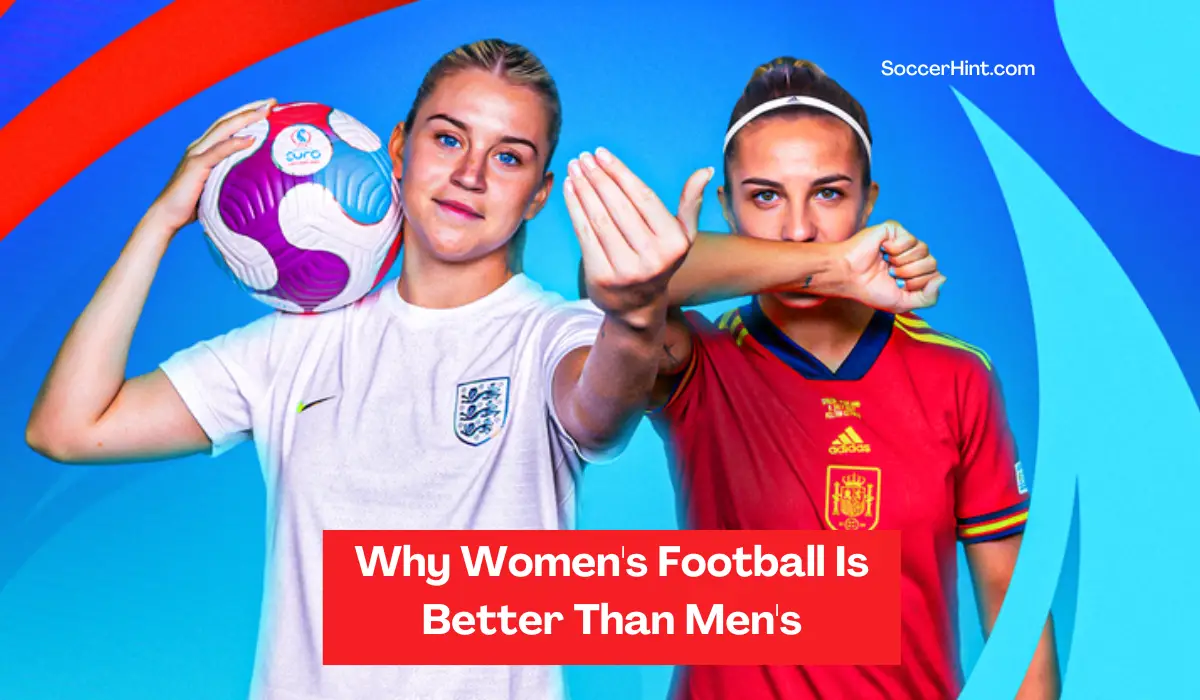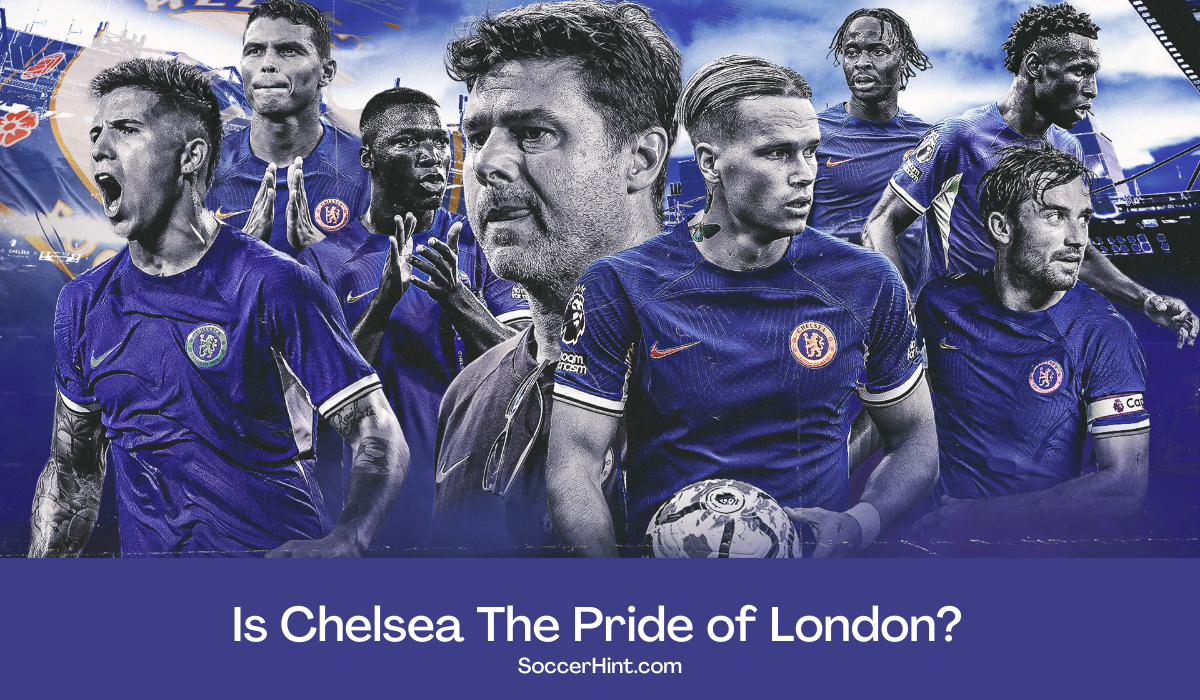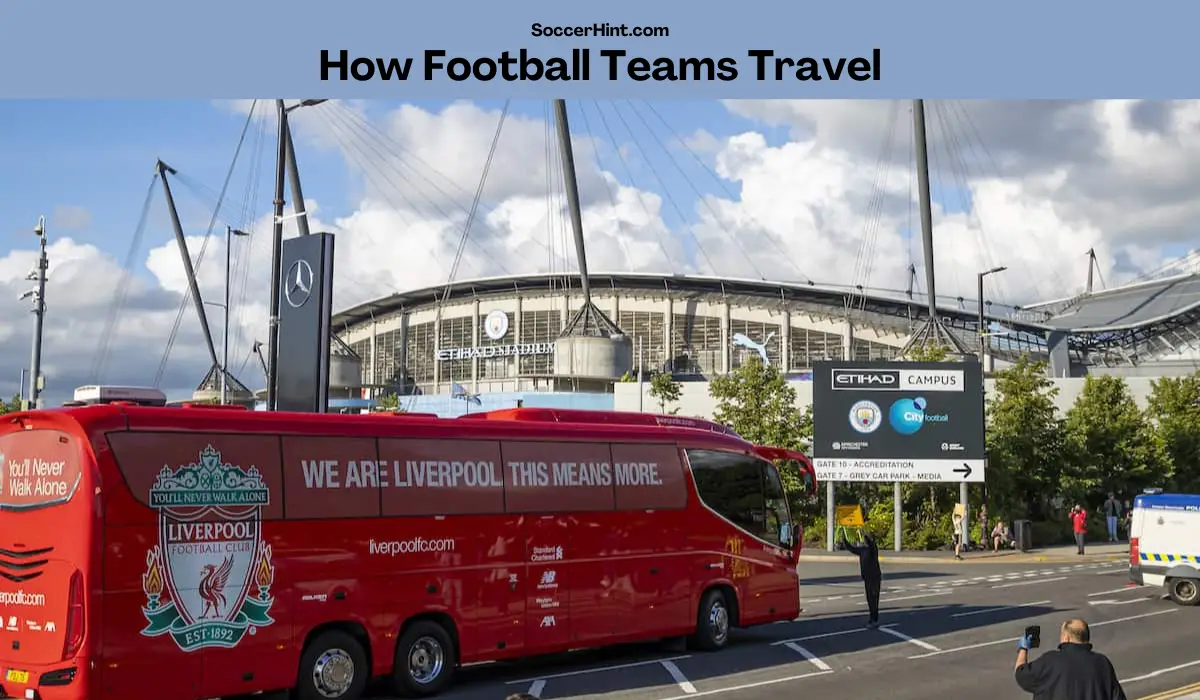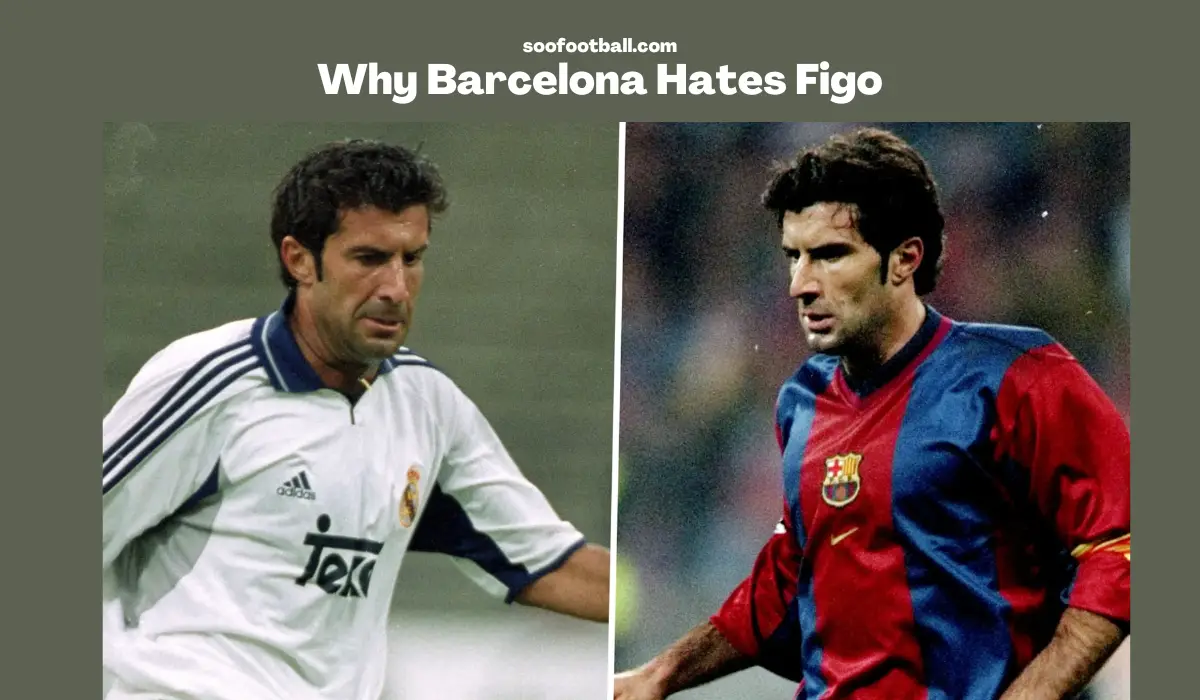The world of football is full of exciting rivalries that make the game even more thrilling. One of the most famous rivalries is between the teams Liverpool and Manchester United. What’s interesting about this rivalry is that even though these two teams aren’t from the same city, they have a fierce competition that has puzzled many. So, why Liverpool and Manchester United rivalry? To get the answer, we need to dig into the history and reasons behind this intense feud that keeps fans on the edge of their seats.
Read Also: What Arsenal Fans Call Themselves Explained
5 Main Reasons Why Liverpool and Manchester United Rivalry Exists
The main reasons why Liverpool and Manchester United rivalry exists are explained here in detail.
1. Historical Success and Trophy Chase
The pursuit of success and the relentless quest for trophies are foundational aspects of the rivalry between Liverpool and Manchester United.
Liverpool FC boasts an illustrious history, with 19 league titles and 6 European Cups/Champions League trophies to their name. The club’s dominant period during the late 1970s and 1980s, under the management of Bob Paisley and later Kenny Dalglish, saw them clinch numerous league titles and European successes. One of the most iconic moments in their rivalry with Manchester United came during the 1977 European Cup quarter-finals when Liverpool emerged victorious over two legs.
On the other hand, Manchester United, under the legendary Sir Alex Ferguson, launched a remarkable counterattack during the 1990s and early 2000s. Their dominance during this period saw them secure 13 Premier League titles and 2 Champions League trophies. The intense competition between the two clubs reached a crescendo in the 2008-2009 season when they faced off in the Champions League quarter-finals. United won both legs, further fueling their own pursuit of supremacy.
The historical success of both clubs has turned their rivalry into a perpetual trophy chase. When one club achieves success, the other is spurred on to match or surpass it. For instance, when Liverpool ended their 30-year league title drought by winning the Premier League in the 2019-2020 season, it ignited even more determination within Manchester United to catch up.
The trophy chase has a practical impact on the rivalry, as each new title win or trophy capture provides ample fodder for banter between fans and players. It fuels the “we’re better than you” mentality and adds an extra layer of competitiveness to their encounters.
Read Also: How Many Premier League Titles Have Man City Won?
2. Geographical Proximity and Local Bragging Rights
The geographical closeness of Liverpool and Manchester fuels a unique rivalry that extends beyond the football pitch. Despite being separate cities, their proximity amplifies the competition, making matches between Liverpool and Manchester United about more than just football – they’re battles for regional pride and local bragging rights.
The relatively short distance between Liverpool and Manchester – around 35 miles – means that the fans, players, and communities often interact. This proximity accentuates the rivalry, creating an environment where supporters from each city routinely cross paths, whether it’s in workplaces, schools, or social gatherings.
These encounters become more than just games; they become opportunities for fans to assert their city’s superiority. The local bragging rights are at stake, and the outcome of the match can lead to weeks or even months of playful taunting or triumphant celebration, depending on which team emerges victorious.
Imagine a crucial Premier League fixture between Liverpool and Manchester United. The buildup to the match is charged with local pride, as fans from both cities exchange banter and spirited discussions. The winner not only secures points in the league but also gains the upper hand in the regional rivalry. If Liverpool emerges triumphant, their supporters might revel in the joy of possessing the “bragging rights” over their Manchester counterparts until the next showdown.
3. Industrial Origins and Working-Class Pride
The roots of the Liverpool and Manchester United rivalry can be traced back to their industrial origins, which have infused the competition with a sense of working-class pride. This historical context has shaped the nature of their rivalry, making it more than just a sporting clash.
The rivalry finds its origins in the industrial history of both cities. Liverpool’s maritime significance and Manchester’s industrial prowess sparked not only economic competition but also a rivalry that transcended industries. As factories and shipyards flourished, the cities’ football clubs became representative of their working-class identities.
The football clubs, Liverpool FC and Manchester United emerged as symbols of the working class, providing a sense of belonging and unity. Fans saw their teams as representatives of their city’s industrious spirit. This association gave the rivalry a deeper meaning, where each match was a chance to prove the superiority of their working-class values.
In a heated derby match, Liverpool faced Manchester United. Beyond the football pitch, the match echoed the echoes of industrial heritage. The fans’ chants and displays paid homage to their cities’ history. The result became an embodiment of the working-class pride of the respective cities, where the rivalry extended far beyond the players and the trophy.
4. Cultural Differences and Identity
The intriguing Liverpool and Manchester United rivalry is further deepened by the cities’ distinct cultural identities. These differences in culture and identity contribute to the uniqueness of the rivalry, creating a captivating clash that extends beyond the football pitch.
Liverpool and Manchester have unique cultural heritages. Liverpool’s history as a major port city has led to a diverse cultural mix and a strong musical legacy. Manchester, with its industrial background, has a reputation for innovation and creativity. These varying cultural influences are reflected in the fans’ expressions of support and the atmosphere surrounding matches.
The rivalry becomes an arena for showcasing cultural differences. Fans of Liverpool and Manchester United often incorporate local traditions and references into their chants, banners, and celebrations. These rituals are a reflection of the cities’ distinct cultural nuances, reinforcing the idea that the rivalry goes beyond football.
On matchday, as Liverpool faces Manchester United, the streets surrounding the stadium are awash with colours, songs, and fan attire that embody the cities’ cultural identities. The vibrant spirit of Liverpool’s music scene intertwines with Manchester’s industrial pride, resulting in a tapestry of cultural expression that magnifies the rivalry’s richness.
5. Impactful Matches and Emotional Investment
The Liverpool and Manchester United rivalry is defined by its history of impactful matches that evoke deep emotional investment from both players and fans. These matches have left an indelible mark on the rivalry, shaping its intensity and the fervour it generates.
Several matches between Liverpool and Manchester United have been pivotal in shaping the course of the rivalry. These encounters often determine league titles, cup victories, or even influence the trajectory of a season. The weight of these matches amplifies the emotional investment from both sets of supporters.
The emotional investment from fans goes beyond mere support. It’s an all-encompassing commitment that sees them engaging in pre-match rituals, attending games in large numbers, and experiencing every moment on an emotional rollercoaster. The intensity of their involvement magnifies the significance of each match.
In the 2005 UEFA Champions League final, Liverpool staged an incredible comeback against AC Milan, securing the title in a penalty shootout. The impact of that match reverberated not only through Liverpool’s history but also through their rivalry with Manchester United. The emotional investment of both Liverpool and United fans in that match’s outcome underscored the resonance of these encounters.
Consider Reading: Premier League vs Champions League Prize Money Analyzed
Conclusion
In the world of football rivalries, the clash between Liverpool and Manchester United shines brightly. We’ve explored various reasons that fuel this intense competition, but one stands out above the rest: the deep emotions of the fans.
The way fans support their teams turns each match into a powerful experience. Their pride for their cities and the teams they love becomes mixed with every victory and defeat. This emotional connection takes the rivalry beyond just a game.
As fans, players, or even curious onlookers, we’re part of something special when we witness Liverpool against Manchester United. It’s not just about winning or losing. It’s a story of history, identity, and the communities that these teams represent.
So, next time you watch these teams play, remember that it’s more than a contest—it’s a celebration of where they come from, their unique stories, and the excitement of the sport. Let’s enjoy this rivalry for the connections it creates, the diversity it highlights, and the joy it brings to fans everywhere.
Feel the passion, join in the excitement, and embrace the heart of Why Liverpool and Manchester United Rivalry.

